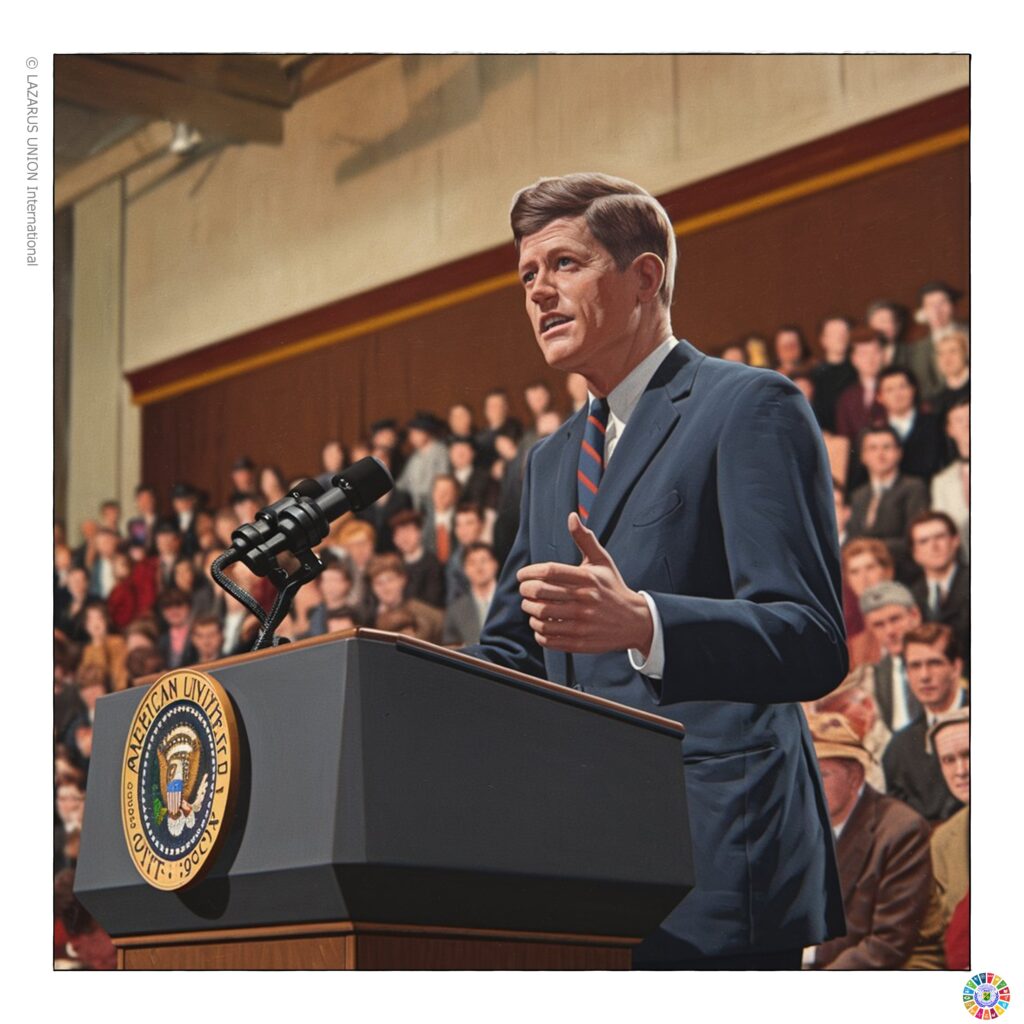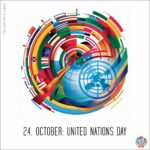
Strategy for peace – President John F. Kennedy’s speech to the American University
On 10 June 1963, President John F. Kennedy gave a keynote speech at the American University in Washington on his decision that the USA should develop a “Strategy of Peace” towards the Soviet Union instead of the strategy pursued until then of using military superiority to enforce a “Pax Americana“.
The speech was triggered by John F. Kennedy’s experience that in autumn 1962 he stopped the prepared military escalation of the Cuban Missile Crisis, including the use of nuclear weapons against the USSR, by agreeing in direct negotiations with Nikita Khrushchev on 28 October 1962 to withdraw the medium-range missiles aimed at each other: arms control to prevent nuclear war!
John F. Kennedy decided in favour of this first arms control agreement between Washington and Moscow – against the advice of most of the President’s advisors and the Pentagon, with the exception of Secretary of Defence McNamara. The Soviet nuclear missiles were then withdrawn from Cuba and the American nuclear missiles from Turkey and Italy.
Kennedy explained his motive for this lone decision in favour of “arms control” instead of “nuclear weapons deployment” in his speech to the American University on 10 June 1963, saying that he was guided by the realisation that “everything we have built … would be destroyed in the first 24 hours“.
Kennedy’s “Strategy of Peace” was the model for the development of Willy Brandt’s German policy of détente, which Egon Bahr summed up around a month later, on 15 July 1963, at the Protestant Academy in Tutzing: “Change through rapprochement“.
Here are some quotes from President John F. Kennedy’s speech to the American University, Washington, D.C. on 10 June 1963:
What kind of peace are we seeking? I am not talking about a PaxAmericana imposed on the world by American weapons of war. … I am talking about real peace, the kind of peace that makes life on earth worth living, ….
…Total war is pointless in an age when great powers can maintain many and relatively impregnable nuclear weapons and refuse to surrender without using them. It is pointless in an age in which the explosion of a single nuclear weapon is almost ten times more powerful than the weapons of all the Allied air forces of the Second World War combined. …
No system of government or society is so evil-minded that its people are to be regarded as virtueless beings. We Americans find communism deeply repugnant because in it personal freedom and dignity are negated. Yet we can cheer the Russians for their many achievements, in science and space, in economic and industrial growth, in culture and in courageous actions.
Of all the characteristics that the people of our two countries have in common, none is as strong as our unanimous disdain for war. We have never been at war with each other, which is almost unique among the world’s major powers. And in the history of war, no nation has ever endured as much suffering as the Soviet Union did during the Second World War. …
If a total war were to break out again today, no matter what, our two countries would be the main targets. … Everything we have built, everything we have worked for, would be destroyed in the first 24 hours. …
In short, both the United States and its allies and the Soviet Union and its allies have a deep, mutual interest in seeing a just and honest peace and a halt to the arms race.
Full speech: Commencement Address at American University in Washington | The American Presidency Project
Video: https://youtu.be/XJ8mUglSx0Y



